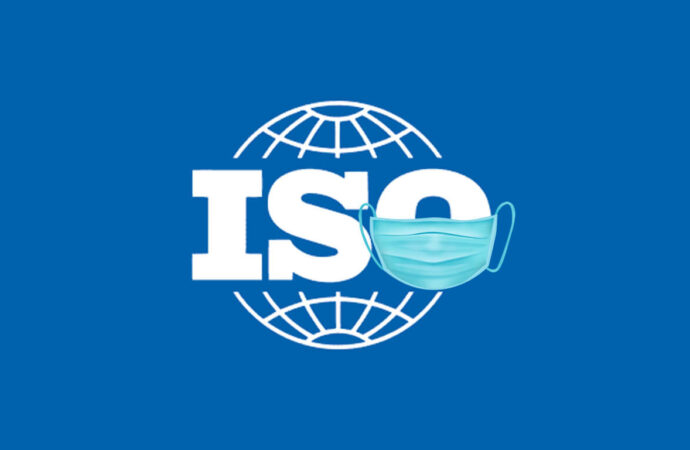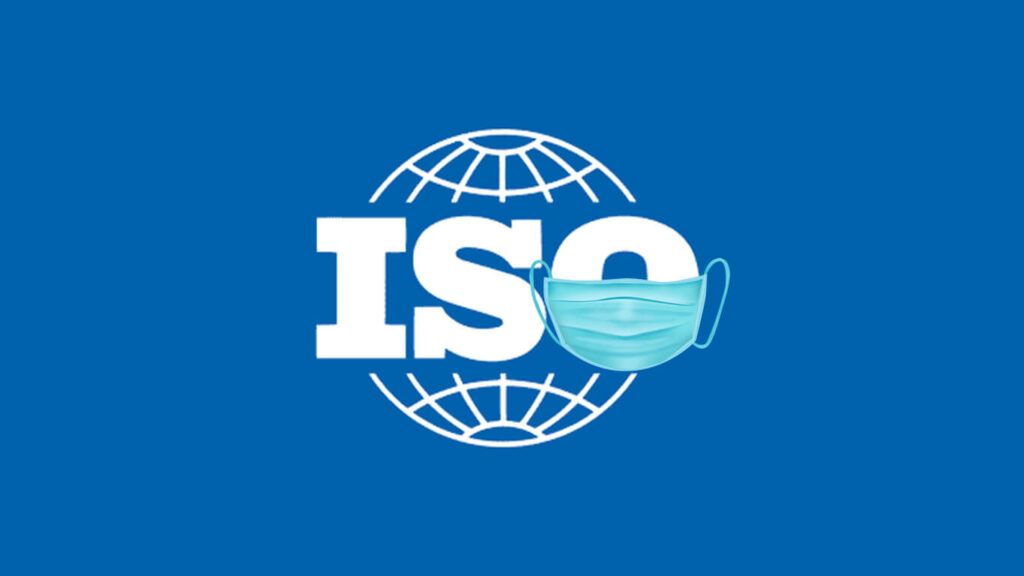ISO Pros of Tennessee Provides a Variety of Different Standards
Contact Us

Aerospace AS9101
This sets out, by the 9110 guidelines, the content and regulations for the adaptation of the reporting process and the compliance of the audit. These are the procedures used by the Certification Body to identify the review report to be submitted after every certification, testing, or re-certification audit has been carried out.

Aerospace AS9102
AS9102 states that the prototype of the current assembly or component during the first production phase (repeated with significant adjustments) shall be tested by the requirements of the manufacturing program, process, and tools for the manufacture of the relevant components, as referred to in the First Article Inspection.
Anti-Bribery ISO 37001
It is intended to support companies in developing an anti-bribery management system. Specifies several steps that the company should take to better deter, track and fix bribery. Bribery by a company, its staff, or business partners for its gain.
Asset Management ISO 55001
The core management of the 5500 system is to help companies control their assets more efficiently. Via the use of ISO 55001, companies can better monitor their day-to-to-day operations, while still delivering better returns on their expenditures and reducing total harm.
Automotive Core Tools (MSA, FMEA, SPC, AQP, R&M, PPAP, APQP)
IATF 16949 provides services for the implementation of skills for auditing. Effective use of the instruments during every audit is an essential concern for the solution. Quality Core Tools are described as five additional techniques and/or methods that support the standards of IATF 16949.
Body Armor BA 9000
This standard is the implementation of ISO 9001, which is unique to the manufacture of ballistic-resistant body armor. As a production facility runs a quality management system (QMS) accredited as conforming to BA 9000, the vendor has greater trust in the ability to satisfy the demands of criminal justice professionals and to reliably deliver armor that appears to reflect samples required for initial performance monitoring.
Counterfeits AS6081
The AS6081 specification was developed in reaction to a significant and increasing number of fraudulent/counterfeit electronic components entering the aerospace supply chain, presenting significant efficiency, durability, and safety risks. As a result, the AS6081 specification sets out standards and procedures to minimize the possibility of ordering, obtaining, and exporting fraudulent/counterfeit parts, giving your consumers trust in their supply chain.
Energy ISO 50001 and SEP
Certification demonstrates that the energy management system of the company satisfies the criteria of ISO 50001 and informs the public that it is dedicated to energy management. This brings clients, partners, staff, and management trust that the company is energy-saving. It also serves to ensure that the energy management system operates in the organization.
Ethical Sourcing SQFI
It is a charitable supplement for companies that are dedicated to maintaining economically and environmentally safe food procurement activities. The Ethical Sourcing Standard is a system that integrates food production and distribution with environmental and social management.
Facility Management ISO 41001
Reducing risks resulting from the implementation of ISO 41001 is a valuable advantage for the facility manager. Standards minimize the potential for human error. If mistakes are minimal, efficiency improves so there are fewer job stoppages. It lays down guidelines and instructions for the implementation of energy management systems in the organization.
Food Safety Modernization Act FDA FSMA
This moves the emphasis from reacting to foodborne disease to avoiding it. The FDA has finalized seven main rules for the implementation of the FSMA, acknowledging that maintaining the protection of food supplies is a joint obligation between several various parts of the global supply chain for both human and animal food.
Food Safety ISO 22000
This norm helps companies recognize and monitor food safety risks when operating in conjunction with other ISO management requirements, such as ISO 9001. Applicable to all kinds of producers, ISO 22000 offers a layer of reassurance across the global food supply chain, helping consumers transcend boundaries and providing customers with the food they can trust.
Forestry SFI ATFS (Sustainable Forestry)
It is a holistic system of goals and success metrics that combine the sustainable growth and processing of trees and the conservation of plants and animals. It is founded on the principle that good environmental actions and rational business choices should coexist.
Gluten-Free Certification (GFC)
This is an enterprise initiative devoted to providing independent certification services to gluten-free farmers by quality monitoring and control steps during processing. It gives customers trust in the quality of their food and is said to be one of the leading internationally recognized, reliable, and rigorous gluten-free certification programs.
International Traffic in Arms Regulations, ITAR
These rules and legislation are intended to conform with international arrangements, embargoes, tariffs, and other policies that the U.S. has with other nations. Most critically, the rules and legislation are intended to safeguard U.S. national security such that the most confidential knowledge and technology are not in the wrong hands.
IT Service ISO/IEC 20000-1
Designed to help companies provide reliable managed IT services to consumers and sustain these values over time. ISO/IEC 20000 lets companies effectively provide quality IT Service Management through a robust process approach.
Laboratory Accreditation ISO 17025
Which is the primary measurement and calibration laboratory norm. ISO 17025 has many commonalities with ISO 9000, but ISO 17025 tests technological expertise in laboratory research and calibration services and extends to organizations producing test and calibration performance.
Packaging ISO 15378
This is achieved as a company has to show its commitment to reliably provide goods and services that satisfy consumer expectations and the relevant legislative and regulatory requirements. The company seeks to increase consumer loyalty by the successful implementation of the system, including mechanisms for system improvement and customer conformity assurance, as well as relevant legislative and regulatory standards.
Responsible Care RC14001
The Responsible Care® initiative was created to allow America’s leading chemical companies to reach even higher levels of environmental, health, safety, and protection efficiency and to produce greater value for their businesses.
Supply Chain ISO 28000
The Supply Chain Protection Management System Standard, established in response to the demands of the shipping and logistics industry, aims to increase the overall security of supply chains.
Telecommunications TL 9000
TL 9000 is a common quality management system for the design, implementation, manufacturing, distribution, installation, and maintenance of telecommunications devices, i.e. hardware, software, and services. Benefits involve increased competitive advantage by better client service and loyalty, emphasis on quality, output data, and outcomes.
Audit Management Systems ISO 19011
ISO 19011 is classified as a specification that sets out standards for audit management systems. The norm includes guidelines on the management of the audit program, the concepts of auditing, and the assessment of entities responsible for conducting the audit programs.
Outsourced Internal Auditing
Some smaller organizations, who are mandated by a regulatory agency or a funding agreement to provide an internal audit feature, may feel that they prefer to outsource internal audit entirely to an external contractor rather than to incur the expense responsibility of hiring and educating their internal audit section.
Virtual Internal Audits
Changes in operating processes in reaction to COVID-19 add a host of new or improved danger areas and the ability to undermine the current system of internal controls is strong. This minimizes the detrimental effects and maximizes the importance of internal audit activities for management and the Board of Directors.
Second Party Audits
A second-party audit is an external audit conducted by a client or a contracting entity on behalf of a customer by a provider. The deal is in effect and the products or services are or will be shipped.
Documentation Audit/Desk Audit
A desktop audit checks records within the framework of the audit. It is referred to as a desktop audit since it can be done remotely at the auditor’s desk. The knowledge collected is used to schedule the on-site audit.
Supplier Audits
Supplier audit is customized software that evaluates the quality systems of the Supplier as well as the working atmosphere and the willingness of the Supplier to follow the requirements established by the Customer. A product audit will guarantee that the products and manufacturers are willing to comply with the particular specifications.
Supplier Assessments
Supplier assessment relates to the process of evaluating and accepting prospective suppliers by quantitative and qualitative assessment. The aim is to ensure that a portfolio of the best vendors in the class is made available for usage.
Compliance Audits
A compliance audit is a thorough analysis of compliance by the agency with the regulatory requirements. The audit findings assess the strength and thoroughness of compliance preparations, protection protocols, user access controls, and risk management processes in the context of the compliance audit.
Pre-assessment Audit
The pre-assessment audit is conducted before the certification/registration audit is carried out.
IQC The ISO Pros of Tennessee can help you implement, train on, consult, and have your company and/or organization certified on the following ISO Certifications:
If you want to enjoy the above-listed benefits, contact IQC the ISO Pros of Tennessee, now. Our services are accessible in all of the below-mentioned cities:

